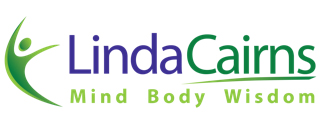A Nervous Breakdown in the Skin
There seems to be no end to the effects that chronic stress has on the body! Chronic or long-term stress is not only associated with acute symptoms, such as headaches, muscular aches, disturbed sleep and feeling unable to cope; it is also linked with accelerated ageing and an increased risk of developing chronic diseases, such as cardiovascular disease. While stress can affect organs and tissues in many areas of the body, stress has been identified as a key driver of many common skin conditions. We are all aware that skin conditions can cause stress, but did you know that stress can be a cause of skin conditions?
During times of stress, there is an increase in circulating stress hormones, such as cortisol, throughout the body. Interestingly, the skin is also capable of generating these same stress hormones in response to stress. These hormones may weaken the skin’s natural protective barrier, leaving the skin more susceptible to infection or inflammation, and can also aggravate an already existing skin condition.
If you think of the skin as a billboard that displays to the world how stressed you are, it makes sense that finding strategies to manage stress is an important part of reducing the severity of skin conditions such as acne, eczema, psoriasis and rosacea.
Relax and be Radiant!
There are many stress management techniques you can incorporate into your daily routine that may improve your ability to cope with stress, thereby lessening the damaging
effect that stress has on your skin. Strategies for stress management include:
- Better time management: Set priorities and improve the way you plan your days and weeks to reduce stress associated with deadlines.
- Guided meditation is a great way to relax: CD’s, individual classes or group classes can be useful ways to teach you how to meditate properly.
- Be active: Exercise helps with maintaining healthy stress hormone levels. There are many different types of exercise depending on your personal preferences including yoga,
tai chi, running, walking, cycling and group fitness classes. - Hobbies: create time for yourself each week to do the activities you enjoy the most.
Stress Less with Good Nutrition and Helpful Herbs
Along with lifestyle modifications, support with herbal and nutritional options may also help to improve your stress management skills.
During times of stress, your body has increased demands for certain nutrients. If you are chronically stressed, you may require more magnesium than usual to keep your muscles relaxed and keep your nervous system functioning properly. The irony is that during times of stress, you excrete more magnesium, leaving your stores of magnesium depleted. This depletion of magnesium can leave you feeling anxious, uptight and can even affect your sleep. This results in a vicious cycle, whereby stress lowers your magnesium levels and low magnesium levels increase your stress response! Magnesium diglycinate is a form of magnesium that is highly absorbable and better utilised by the cells in your body to support your nervous system and keep you healthy. Magnesium diglycinate is therefore the best form of magnesium to take when you are feeling stressed.
In addition to nutritional support, there are many herbal remedies that can be used to reduce the effects of stress on your body, particularly as it relates to the skin. Every person responds to stress differently and in order to get the best results, you need to find the treatment strategy that is right for you. Linda Cairns nutritionist gold coast is well placed to create a stress management protocol that is tailored to your individual needs to help you achieve optimum results.
Stress Doesn’t Just Come from Inside!
When considering the effects of stress on the skin, it is not only psychological stress that must be considered, but also external stressors that directly impact skin health. The skin is exposed to all sorts of environmental stressors such as pollution, sun and wind, which can induce the localised stress response and increase local stress hormone production. Applying natural topical lotions containing therapeutic ingredients such as shea butter, calendula (Calendula officinalis), chamomile (Chamomilla recutita), vitamin E and manuka oil (Leptospermum scoparium) can minimise the effects that environmental stress has on the skin by supporting the function of the skin’s protective barrier, thereby reducing the local production of stress hormones within the skin cells themselves. Using topical lotions to reduce the effects of environmental stressors on the skin is another strategy to improve the appearance of your skin.
It’s More Than Just Skin Deep!
Effective stress management is important for everyone to maintain good health, especially if you have a skin condition. Lifestyle changes, specific nutrients, herbal remedies and topical applications can all form part of a comprehensive treatment strategy to reduce the effects of stress on the skin. If you have a skin condition that you are struggling to manage effectively, speak to Naturopath Gold Coast today about the various strategies than can be used to address the driving factors of your poor skin health, including stress


